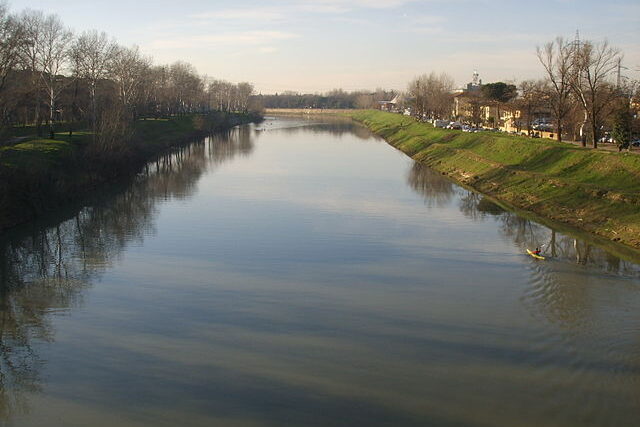
River Ouse may become first in England to gain legal rights.
In light of growing concerns regarding the pollution of waterways, the Lewes council passes a motion recognising the rights of the Sussex river to protection.
As part of a growing movement to strengthen nature protection through the law, the River Ouse is on track to become the first river in England to receive legal rights.
Lewes region gathering passed a rights of stream movement recognising the privileges of nature as an approach to working on the wellbeing of nearby streams by giving them comparable security to individuals, and concurred there was “a case to be made for considering our interactions with our local waterways”.
In the next two years, a charter outlining the river’s rights will be sent to the council for approval. This is probably going to be based on the Universal Declaration of River Rights, which states that rivers should have the right to flow, perform essential functions within the ecosystem of the river, be free of pollution, be fed by sustainable aquifers, have native biodiversity, and be able to regenerate and restore themselves.
When sewage treatment plants along its route are unable to withstand heavy rain, the Ouse, like many other national rivers, becomes clogged with effluent and wastewater. Every English river failed quality tests for pollution in 2019.
Matthew Bird, a Lewes town and district councillor, was the driving force behind the effort to grant the River Ouse rights. He told the Guardian that the way the discussion about water pollution was structured had become more and more frustrating to him. “The water companies are not taking their responsibilities seriously; there’s a policy vacuum at government level, and the Environment Agency, who are the river’s legal protectors, are not protecting it. At the same time, local communities feel powerless and vent frustrations in protest or take part in sporadic orchestrated meetings with Southern Water with no action followed up.”
The council had already approved two previous motions acknowledging its responsibility to safeguard local rivers and pointing to clear evidence that sewage pollution had harmed water quality. According to Bird, this was in response to the public’s growing concern regarding the well-being and health of water bodies and its determination to hold businesses accountable.
In 2020, attempts to grant legal rights to a portion of the River Frome in Somerset failed, prompting Bird to look for a new strategy. After a planning exercise held during a well known waterway celebration, and with help from the Ecological Regulation Establishment and different specialists, he drafted a movement he trusted would bring the entire local area and an adjoining neighbourhood expert ready.
Bird stated that the majority of people voted in favour of the motion after an “impassioned speech” by a Conservative councillor, despite initial opposition. “That was quite amazing, and good to think that feelings towards the river can be stronger than politics,” he said.
The next catchment partnership meeting of organisations working to protect the environment of the water will discuss the charter’s development, which will involve local residents and environmental organisations. According to Bird, there are numerous unanswered questions regarding how the rights will operate in practice. “But that’s fine. We have two years to work out an answer,” he said.
Local organisations like the Ouse and Adur Rivers Trust and the Sussex Wildlife Trust backed the motion.
From Ecuador to New Zealand, laws granting legal rights to ecosystems or natural features like rivers and mountains have been enacted.
——————————————————————————
At Natural World Fund, we are passionate about stopping the decline in our wildlife.
The declines in our wildlife is shocking and frightening. Without much more support, many of the animals we know and love will continue in their declines towards extinction.
When you help to restore a patch of degraded land through rewilding to forests, meadows, or wetlands, you have a massive impact on the biodiversity at a local level. You give animals a home and food that they otherwise would not have had, and it has a positive snowball effect for the food chain.
We are convinced that this is much better for the UK than growing lots of fast-growing coniferous trees, solely to remove carbon, that don’t actually help our animals to thrive.
This is why we stand for restoring nature in the UK through responsible rewilding. For us, it is the right thing to do. Let’s do what’s right for nature!
Support our work today at https://naturalworldfund.com/ and join in the solution!

